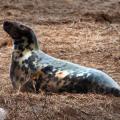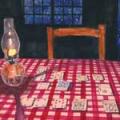Awanadjo Almanack - Issue 105
Blue Hill: The Town, the Bay, the Mountain
By Rob McCall
 Illustration by Sam Manning.
Illustration by Sam Manning.
Something remains for us to do or dare; even the oldest tree some fruit may bear… For age is opportunity no less than youth itself, though in another dress; And as the evening twilight fades away, the sky is filled with stars, invisible by day.
Dear Friends: Thoughts brought on by my first-born daughter’s 40th birthday and some random advice for her and others of the age: Aging is a natural event, but there’s so much they just don’t tell you ahead of time. Passing 40 is a little like going out into terra incognita without a map. There are many marvels and mysteries to be revealed to open eyes and minds in that strange land. First some cautions: Remember the 20/40 Rule. Around 40 and beyond we tend to think of ourselves as roughly 20 years younger than we really are. It’s good to keep in mind that we’re not. Try not to impress people by doing things that you haven’t done since you were 20. This will prevent a lot of embarrassment. There is no fool like an old fool. Some of the most famous last words are: “Hey guys, watch this!” Next, a soft bed is the ruin of your back, chairs are the ruin of your knees and hips, shoes are the ruin of your feet, and inactivity is the ruin of your whole body. Avoid all four when you can. You may want to remove your bifocals when going down stairs, gangways, or mountains. Don’t try too hard to remember a name; it’s more likely to come if you don’t think about it, though by then it’s often too late.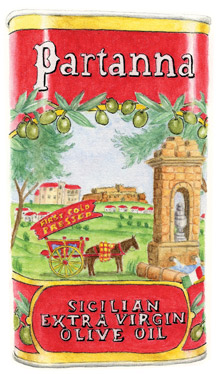 Illustrations by Candice Hutchinson [3].
Illustrations by Candice Hutchinson [3].
Be alert to those new bumps that appear on your body and show them to your doctor. Get used to hair growing where it never did and not growing where it always has. Remind yourself that gray hair is a mark of distinction. Eat whole grains and beans. If you want to, add a little meat for flavor. Olive oil is a life-saver. Get a home blood-pressure gauge; it can actually help you keep your blood pressure down.
Worry, regret, and anger are corrosive of the spirit. Prepare for the worst, hope for the best; then don’t worry. Apologize if you’ve done someone wrong, then let it go. What others do to you is their karma; what you do to them is yours.
Now, some wonders you may behold in those vast and wondrous lands past 40: You will find that love mixed with a good measure of forgiveness is the universal lubricant, solvent, and remedy—miraculously smoothing over rough spots, dissolving problems, and healing wounds. You may find that you are less full of yourself, and more full of life itself.
In the first part of your life you discover how unlike your ancestors you are. In the second part you discover how much like them you are; your joys and sorrows and humor are less personal and more universal; you discover that we really are all in this equally together. This will be vastly comforting, revealing a beautiful new landscape where you are free to live the rest of your life in the company of every living creature, if you so desire.
The longer you live, the more you can grow. You may become a new person every seven years or so. There are always more life-stages waiting to be revealed.
And at the very last, naturally, there is the greatest revelation of all. As the body fails, the soul gets wiser and stronger from weathering storms and squalls, until it takes its final flight from the empty shell of the body over the farthest fields and highest mountains on strong, bright wings.
Natural Events, mid June
The soft, translucent new leaves of plants and trees have hardened into opaque green against the blue June skies as they begin their real work: creating food for all living creatures from nothing more than water, soil, sun, and chlorophyll. The miracle of photosynthesis is the manufactory of all life.
Sometimes I tease my vegetarian friends by reminding them that they are consuming the most valuable and essential form of life. Look, I say, if all the animals were gone tomorrow, life would survive just fine. But if all the plants were to be consumed, life on earth would likely come to an abrupt and sorry end.
Field and forest report, late June
In the fields, the dandelions have gone by, and the orange and yellow hawkweed, buttercups, red and white clover, and ox-eye daisies are coming into flower. In the woods, the wild viburnum, sometimes called high-bush cranberry, is coming into bloom with rosettes of white flowers. Ornamental viburnums are also in bloom. These are often attacked and defoliated by the viburnum beetle in two stages, first by the grub and later in the season by the adult beetle. I do not know of any organic control for these pests, but would like to hear of some. If you must spray, pyrethrins are probably the least toxic. These shrubs produce berries that attract and feed many birds during the winter.
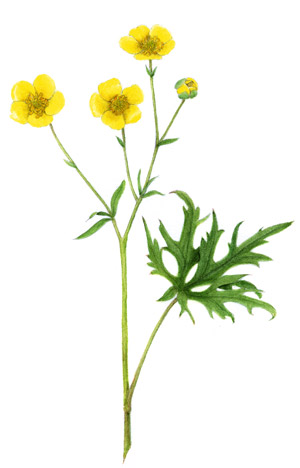
Field and forest report, early July In the fields the ox-eye daisies, orange and yellow hawkweed, yellow rattle, purple vetch, and blue-eyed grass offer all the colors of the rainbow to our wondering eyes. In the ditches and swamps the wild iris or blue flag flaunts its Buddhist blooms to sooth the fevered mind with mystic beauty. In the woods the new growth on spruce, fir, and tamarack is soft and pale green, dripping jewels in the fog.at another allium, the Easter lily, is the ancient symbol of resurrection.
Natural and un-natural events, mid July
What is a weed? The farmer would say it is anything growing where it is not wanted. That could equally apply to a lot of us. Ralph Waldo Emerson, of sainted memory, defined a weed as “a plant whose virtues have not yet been discovered.” Your commentator would add, “or whose virtues have been forgotten.” Perhaps a working definition of a weed would be “any plant that does not help us quickly turn a dollar.”
Many of the plants commonly designated as weeds have traditional food and medicinal values long forgotten or ignored by most of us. If you were to compare, say, the standard Golden Guide to Weeds (1972) with the immortal Euell Gibbons classics Stalking the Wild Asparagus (1962) and Stalking the Blue-Eyed Scallop (1964), you would quickly see that one man’s weed is another man’s feed (not to mention, medicine, nerve tonic, energy supplement, and even aphrodisiac).
For example, the Golden Guide describes the familiar cattail as “objectionable” and a “nuisance along irrigation ditches, in rice fields, reservoirs, and elsewhere.” Gibbons, on the other hand, calls the cattail the “supermarket of the swamps.” “For the number of different kinds of food it produces,” he writes, “there is no plant, wild or domesticated, which tops the common cattail.”
One very common weed, lamb’s quarters, is a member of the chenopodium family, which includes spinach and beets, and it looks like a pale-green bolted spinach plant. It’s great in salads or steamed. I especially like to pick it along the beach, where it has already been salted, and eat it fresh. While you’re there, pick some goose-tongue greens, a type of portulaca, and add them to your salad.
Whenever the subject of weeds comes up these days, a lot of heat is generated on the subject of immigration and “invasive species.” It’s good to remember that plants have always migrated to survive, developing multiple methods for spreading their seeds far and wide. The common English plantain was called white-man’s foot by the Native Americans because it sprang up wherever the English walked.
Ever since we came out of Africa, humans have survived by migrating, too, always bringing plants with them.
Rank opinion
We are all immigrants; upon our arrival, we were viewed by the natives as an invasive species.
Saltwater report, mid July
Phil Small, a local fisherman, says that if you want to be close to God, there is nothing like dawn on the water.
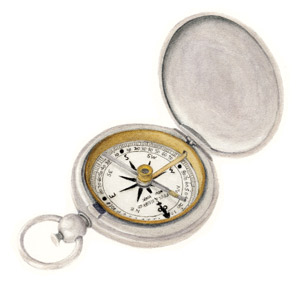
Natural events, late July
Fog is sometimes our nearly constant companion along the coast at this time of year, as warm, moist air moves in over cooler waters. If it is not engulfing us in its damp blanket, then it is waiting just offshore to cover us again when evening comes. As we do with our visitors from away, we work with it. Maybe you’ve heard about the man shingling his roof who shingled right off the edge and out onto the fog until a gust of wind blew the fog away and the shingles clattered to the ground. I guess he lived to tell the tale.
Thick fog can be dangerously disorienting, even to the experienced sailor. Not long ago a native Eastport skipper ran his schooner aground in the fog not a mile from where he was born in waters he had sailed his entire life. Your commentator once spent a week leading a dory expedition of three boats and fifteen people rowing from Pretty Marsh to Bartlett’s Island to Long Island to Tinker’s Island to Pond Island to Swan’s Island to Placentia Island to Black Island and in to Bass Harbor entirely in the fog, navigating solely by chart, compass, and bell buoys without seeing the sun once. We miraculously found our way among the islands, but I’ll tell you we were some damp by the end of it, and some glad to set foot on the mainland. You can get under a tree to escape the rain, but the fog “rains” even under the trees.
Traveling in fog calls for faith. You have to go forward to see what’s ahead. For each step you take or each stroke you row, the fog recedes just as much and no more. That’s how you find your way. You have to trust the chart and compass made by others more than your own eyes and sense of direction, or you are likely to get lost.
Saltwater report, late July
Sometimes, when visiting our Cobscook Bay Field Station, I paddle out in the fog to go seal hunting on the bay. The trophy I seek is not pelt or meat, but a meeting with the harbor seals that loll on the ledges. I am seldom disappointed. One day a burly male scout with whiskers dripping followed me around and slapped the water to see if I would retreat. I kept a respectful distance, enjoying the ethereal sensation of rising and falling in the foggy void out of sight of shore. If you try this yourself, do avoid disturbing the lollers—they are resting to conserve precious energy—disturbing them disrupts that balance.
Field and forest report, late July
The common milkweed, Asclepias syriaca, is going by, with its paisley pods beginning to form. If you break a leaf you will see the sticky, white sap that gives this plant its name.
Milkweed is the favorite host for the monarch butterfly, whose chubby black, white, and yellow-striped caterpillars feed on the bitter leaves. They must have no taste buds. The gorgeous green-and-gold cocoons of the monarch can often be found on these stately stalks.
Seedpods to carry around with you
From John Burroughs: “Nature teaches more than she preaches. There are no sermons in stones. It is easier to get a spark out of a stone than a moral.”
That’s the almanack for this time. But don’t take it from me—I’m no expert. Go out and see for yourself.

Rob McCall is the minister of the First Congregational Church, Blue Hill, Maine. This almanack is excerpted from transcripts of his weekly radio show, which can be heard on WERU, 89.9 FM Blue Hill and 102.9 FM Bangor, and streamed live via www.weru.org. Readers can contact him directly via e-mail: awanadjoalmanack@gmail.com.
 Illustration by Sam Manning.
Illustration by Sam Manning.Something remains for us to do or dare; even the oldest tree some fruit may bear… For age is opportunity no less than youth itself, though in another dress; And as the evening twilight fades away, the sky is filled with stars, invisible by day.
— Henry Wadsworth Longfellow
Dear Friends: Thoughts brought on by my first-born daughter’s 40th birthday and some random advice for her and others of the age: Aging is a natural event, but there’s so much they just don’t tell you ahead of time. Passing 40 is a little like going out into terra incognita without a map. There are many marvels and mysteries to be revealed to open eyes and minds in that strange land. First some cautions: Remember the 20/40 Rule. Around 40 and beyond we tend to think of ourselves as roughly 20 years younger than we really are. It’s good to keep in mind that we’re not. Try not to impress people by doing things that you haven’t done since you were 20. This will prevent a lot of embarrassment. There is no fool like an old fool. Some of the most famous last words are: “Hey guys, watch this!” Next, a soft bed is the ruin of your back, chairs are the ruin of your knees and hips, shoes are the ruin of your feet, and inactivity is the ruin of your whole body. Avoid all four when you can. You may want to remove your bifocals when going down stairs, gangways, or mountains. Don’t try too hard to remember a name; it’s more likely to come if you don’t think about it, though by then it’s often too late.
 Illustrations by Candice Hutchinson [3].
Illustrations by Candice Hutchinson [3].

Yr. mst. hmble & obd’nt servant,
Rob McCall

Rob McCall is the minister of the First Congregational Church, Blue Hill, Maine. This almanack is excerpted from transcripts of his weekly radio show, which can be heard on WERU, 89.9 FM Blue Hill and 102.9 FM Bangor, and streamed live via www.weru.org. Readers can contact him directly via e-mail: awanadjoalmanack@gmail.com.
Related Articles
Share this article:
2023 Maine Boat & Home Show

Join Us for the Maine Boat & Home Show!
Art, Artisans, Food, Fun & Boats, Boats, Boats
August 11 - 13, 2023 | On the waterfront, Rockland, Maine
Click here to pre-order your tickets.
Show is produced by Maine Boats, Homes & Harbors magazine.










